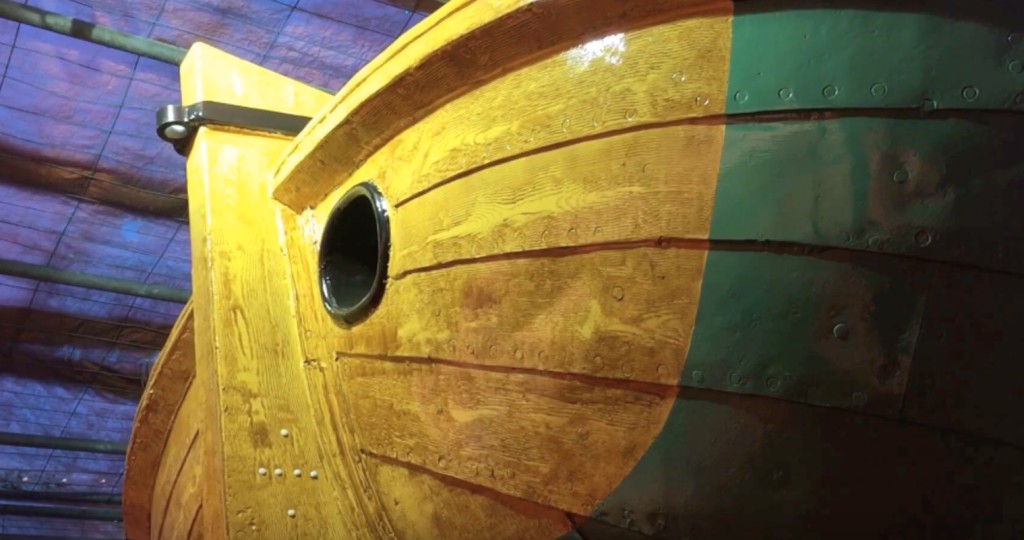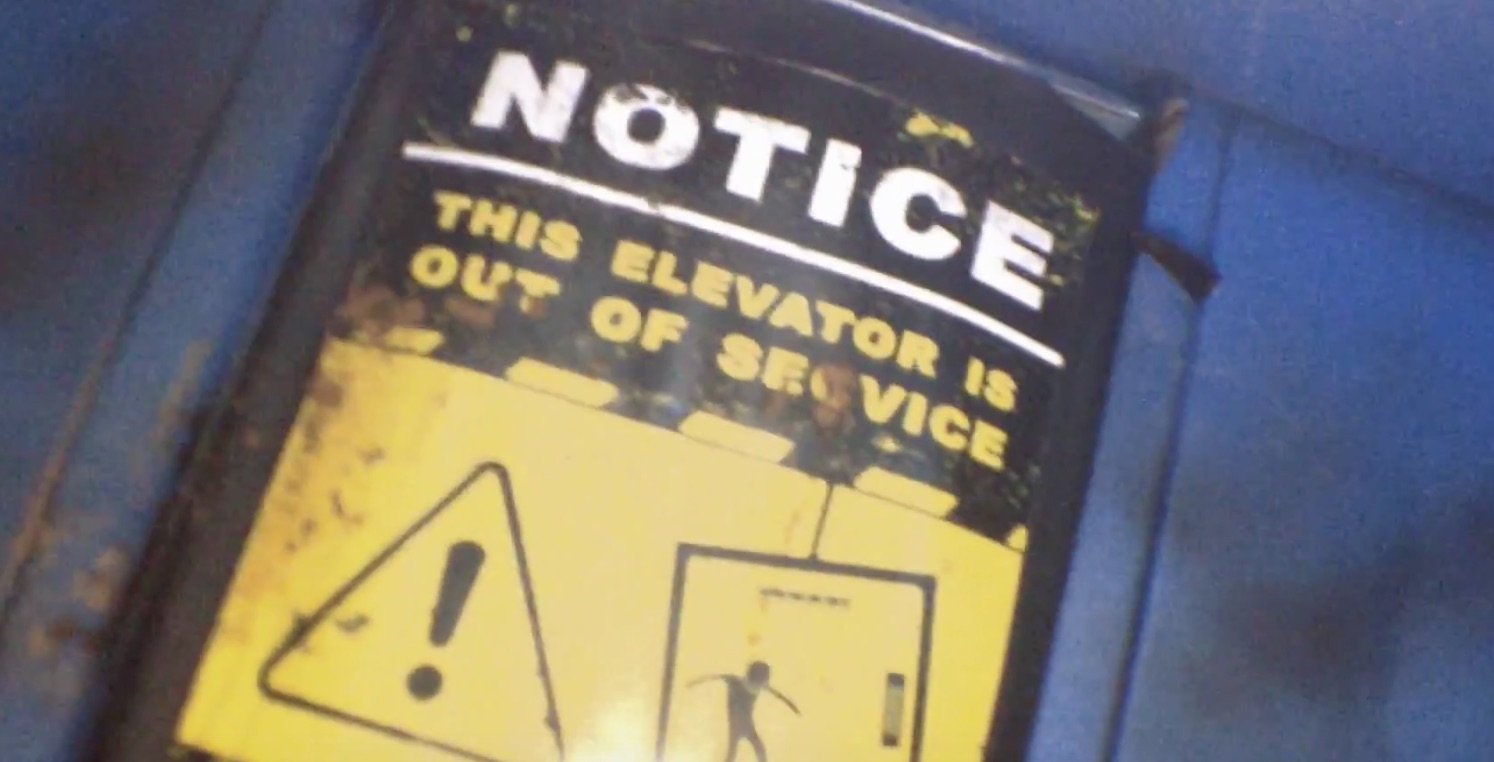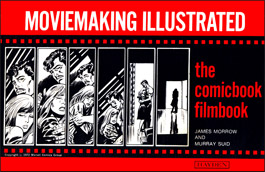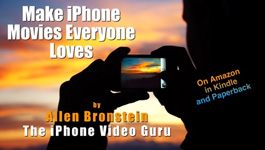Aris Tyros is a Canadian actor and iPhone filmmaker. His “How I Became a Movie Theatre Murderer” won the second place Audience Award at this year’s MoMo Film Festival in Zurich. In this his first film, Tyros joins Charlie Chaplin, Orson Welles, Ida Lupino, and Woody Allen in directing himself, a challenge that he discusses among other topics in the following interview.
MMM: What genre description best fits your film?
Tyros: Whenever someone asks me that I say “thriller” because it seems to be the closest but I can’t really nail down one genre that “How I Became a Movie Theatre Murderer” falls into. Even though it’s a fairly serious topic, there’s also a lot of comedy in it. Which was one of my favorite parts of watching it at the MoMo Film Fest. The audience was laughing at those darkly humorous bits.
MMM: How did you develop your filmmaking skills?
Tyros: My training has been more a process of absorption than anything formal. I watch at least one movie every week and have definitely developed a sense of what I think works and what I like. Not to mention working as an actor you get a first hand experience of what a director does and how they do it. So being on set has helped work that directing muscle more than I think I even realize.
MMM: Why did you decide to use a smartphone to shoot your film?
Tyros: It was cheaper and more accessible. With 128 GBs of storage, running out of space wouldn’t be a problem. But there were other benefits.
MMM: Such as?
Tyros: I wouldn’t have to rent a camera and make sure it was free the day I planned to shoot. And I could shoot whenever I wanted, which really came in handy. I’d wake up and think, “Oh this scene could really use an insert” and I’d just shoot it as soon as the sun came up.
MMM: Anything else?
Tyros: Smartphone festivals gave the film a niche. That narrowed down the competition so my film could really rise to the surface. Plus most smartphone festivals are cheaper to enter, or even free.
MMM: Can you talk about the gear?
Tyros: I used the FiLMiC Pro app so that I could adjust focus and exposure. And a gimbal to steady shots with a moving camera. Fluidity was very important to the movie especially the scenes in the theatre.
MMM: Why did you decide to star in your own movie?
Tyros: I’m an actor first and foremost, and it gave me an opportunity to act in something I was very passionate about. I wrote the script (much of it was based off of feelings I’d actually had) and understood exactly what was needed for it, so I’d know how best to serve the story in terms of tone and style. And I wouldn’t have been able to pay someone, so they would’ve had to put in many hours for free. Something I was more than willing to do. And I was tough on myself. If I didn’t like something, I’d re-record it upwards of 20 times, which can be demoralizing but because it was just me I knew it was about getting it right so my ego didn’t get in the way.
MMM: Did you find directing yourself to be difficult?
Tyros: It was challenging because I didn’t have that objective point of view that an actor gets when there’s a separate director. If you’re not able to get a certain moment, the director may have an insight into it which you didn’t think of. The saying “two heads are better than one” is true in this case. However there were moments during filming when I’d ask one of my cast mates—all of whom were friends—whether or not something played well. If it didn’t we’d just problem solve till it worked.
MMM: So in a sense your fellow actors participated in the directing?
Tyros: Yes, among other things. Most actors wore many hats. Adam, for example, who appears in the film, was cameraman and also sound recordist at different points in production.
MMM: Will you describe attending the MoMo film fest?
Tyros: I flew to Switzerland to attend, which is far from Canada but I was so excited that I didn’t care. It also gave me a brilliant reason to travel. The festival was held in this beautiful 160 seat theatre in a trendy district of Zurich and it was sold out for the award ceremony where the top 13 of 480 films were showcased. The organizers were amazing. They put all the filmmakers up in the same hotel. In fact we were all on the same floor! They even live-streamed the event for people around the world who weren’t able to attend. Chris Bergoch the co-writer and co-producer of the hit iPhone film Tangerine gave an inspiring master class and even stayed for the duration of the festival to chat with everyone. The audience voted our film their 2nd favorite of all the films! So all-in-all an unforgettable experience.
MMM: What was it like to see your film’s title on the big screen?
Tyros: It was such a rush. I was very nervous because the largest screen I’d ever seen it on was my computer, which is 27 inches and this would be over 27 feet, and I didn’t know how the quality would hold up. But it did! And it was such a heightened experience watching it and also being hyper aware of the audience’s reaction at every moment.
MMM: A close study of your movie will provide viewers with many practical lessons, for example, the way you use props, narration, speeded up motion, and costumes. The montages–for example–when the protagonist gets buffed–are also effective. But is there explicit advice that you’d like to give new filmmakers?
Tyros: Just go for it! If you have an idea and you want to share it, do it! There’s such a sense of accomplishment when you bring something in your head to fruition. And if it sucks maybe only share it with people who’ll support you, but still take pride in that fact that you didn’t sit back, you got up and did it. And if you do that enough times I guarantee that it won’t suck.
* * *
To learn more about the production visit the Facebook fan page or follow the direct on Twitter and Instagram You can see the trailer for the movie here.



 Previous post
Previous post
 Next post
Next post





